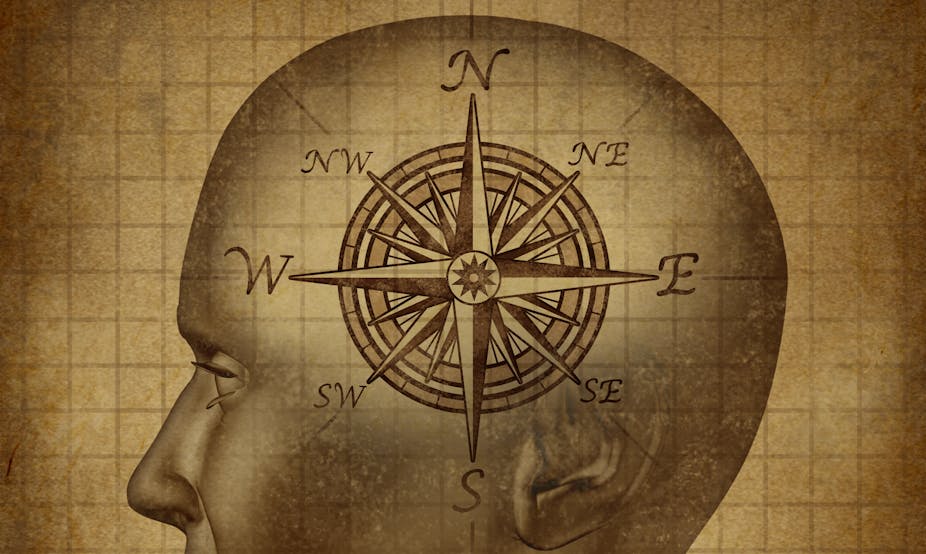We’re in a state of moral decline in the West – or so we’re told. From sky-rocketing divorce rates and the shrinking of life-long commitments to an excessive concern with self and consumerism.
Morality has been diagnosed and it’s terminal.
But does that mean as a nation Australians are less kind or compassionate than we used to be? What’s at the cause of this moral decline? Or does it even exist?
New research suggests that there’s reason enough to question the conventional wisdom around moral decline.
Shaky premise
In an Australian survey, my colleagues – Daphne Habibis and Anthea Vreugdenhil – and I asked nearly 2,000 respondents how kind they see themselves and others.
We found that 95% of respondents believe that it is quite or very important to be kind to one another; 97% agreed that they see themselves as a kind person; 90% reported performing a kind act at least once a week and 82% say most Australians are quite or very kind.
51% said they were kind because “it’s who I am” while only 12% of respondents said it was because they like to be seen as kind, it may benefit them or that they are required to be kind.
These findings suggest that perhaps the extent and nature of moral decline is not what we thought it was.
Two schools of thought
So where do these ideas about moral decline come from?
There are two schools of thought – the first argues that with the weakening of community, we have become less friendly, kind or giving.
Proponents of this view, like Australian commentators Clive Hamilton and Hugh Mackay, argue that the breakdown of community and rise of the individual have undermined a common moral culture and a shared sense of responsibility toward others. Hamilton for example, suggests that materialism has worn away at everyday virtues of honour, courage or self-sacrifice while Mackay suggests that Australians are now less charitable, more prejudiced and less compassionate, because we’re all less focused on our communities.
But there’s another group of thinkers that don’t blame a decline in morality on the decline of community. Instead they point to the lessening of traditional sources of authority like religion. They also point to the rise of a “therapeutic culture” where we focus on improving ourselves. These thinkers see this as leading to uncaring narcissism, where self-improvement and self-gratification become the ultimate concerns of life.
For example, American thinker Christopher Lasch argues that Western culture is pathologically preoccupied with the care and well-being of the self:
“Having no hope of improving their lives in any of the ways that matter, people have convinced themselves that what matters is psychic self-improvement: getting in touch with their feelings, eating health food, taking lessons in ballet or belly-dancing, immersing themselves in the wisdom of the East, jogging, learning how to "relate”, overcoming the “fear of pleasure”.“
Not so simple
Common to both these views, is the understanding that morality has little hope in a culture where strict moral rules are no longer enforced by religion and community. A culture that values emotions and self over rule following and communal values.
But does the alleged damaged moral order just boil down to a weakening of faith, community and tradition? Such perspectives fail to acknowledge the more complex picture of morality. The first view has a romantic image of community, ignoring that communities often silence individual moral responsibility and exclude alternative moral voices.
The second view offers a simplistic view of cultures of therapy and self-fulfilment. They see them as unavoidably self-absorbed, but overlook the morally creative potential of the values of self-development. For example, does turning to "the wisdom of the east” or “eating health food” have to be read as signposts on the way to narcisstic moral impoverishment?
Does the recent growth of Buddhism in Australia, for example, not centre on an ethics of minimising suffering for self and others? Further, why is a better diet simply self-indulgent? Recent research in the area of food and the ethics of consumption shows how the growth of fair-trade and cruelty-free products, the slow food movement, practices of “buycotting” and vegetarianism can engender new modes of ethical citizenship and encourage “politics of the self”.
It seems then the jury is still out on the reasons of moral decline or whether it’s happening in the first place. But perhaps morality is in a better state than we think.

